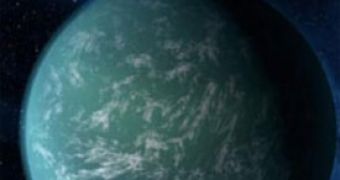A team of researchers writing in this week's issue of the journal Proceedings of the National Academy of Sciences say that they have finally figured out how our planet used to smell like several million years ago.
Long story short, these scientists maintain that, at some point in its early days, our planet emanated a not-so-pleasant odor that strongly resembled rotten eggs and blocked drains.
These conclusions were reached following the researchers' getting the chance to have a look at fossil evidence dating back to 1.9 billion years ago.
The fossils closely inspected as part of this research belonged to a bacterium referred to as Gunflintia.
This fossil evidence allegedly proves that, at that time in our planet's history, microbes used to feast on other microbes in order to get the nutrients they needed to survive. Live Science says that this feeding behavior is known to the scientific community as heterotrophy, and that the organisms which resort to it do so because they lack the means to produce their own food using energy and inorganic chemical as their raw materials.
Whatever their reasons, it appears that these microbes' habit of feeding on one another caused significant amounts of chemical compounds that smelled like rotten eggs to be released in the atmosphere.
“In this study, for the first time, we identify how it was happening and 'who was eating who,” reads a statement issued by Martin Brasier, a researcher currently working with the Oxford University.
While Martin Brasier and several other researchers suspect that living organisms first began eating other living organisms about 3.5 million years ago, evidence to support such theories is very much lacking.
“In fact, we've all experienced modern bacteria feeding this way, as that's where that 'rotten egg' whiff of hydrogen sulfide comes from in a blocked drain,” Martin Brasier further elaborated on the matter at hand.

 14 DAY TRIAL //
14 DAY TRIAL //